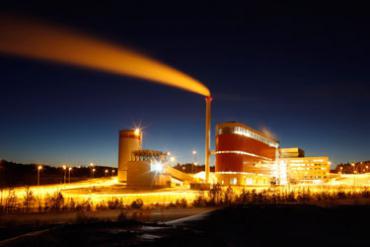Momentum builds for CCUS in energy-from-waste sector across Europe

EU’s important Innovation Fund backs the sector with support for Sweden’s HySkies project
The financing of a waste-to-energy with carbon capture and storage (CCS) project in the latest round of the EU Innovation Fund caps several positive developments for the emerging sector in recent months.
First came news in March that Norway’s Fortum Oslo Varme, the world’s first full-scale commercial CCS operation at a waste-to-energy plant was back on track, following new financing and new shareholders led by Hafslund Eco, a power producer wholly owned by the City of Oslo.
Then, in May, Aker Carbon Capture began construction of a modular carbon capture plant at Twence’s energy-from-waste (EfW) plant in Hengelo, the Netherlands. A carbon capture and utilisation (CCU) project, the captured CO2 will be used as a growth stimulant in the greenhouse horticulture sector, replacing CO2 sourced from burning natural gas. The plant, which has received partial funding from the Dutch government, aims to capture 100,000 tonnes of CO2 a year by 2023.
Also in May, Öresundskraft, the regional Swedish power producer, said it would rent a mobile carbon capture demonstration unit from CO2 Capsol for use at its Filbornaverket EfW plant. The aim is to verify that its hot potassium carbonate (HPC) solvent method is valid for capturing carbon from waste incineration flue gasses. Its potential benefits include lower energy consumption, scalability and cost-effectiveness.
“It is fantastic to see the momentum building for CCS/CCUS in the energy-from-waste sector,” said Dr Philippa Parmiter, Programme Manager at SCCS, a partner in NEWEST-CCUS. “Our work assessing the scale of the European market for CCS/CCUS in the sector and developing a methodology for negative emissions accounting aims to support projects such as these and to encourage faster deployment.”
In the UK, meanwhile, Suez has submitted two proposals to develop EfW with CCS facilities, both of which are being evaluated for funding under the UK Government’s CCUS Cluster Sequencing Process. The facilities, on Teesside, would fall within the East Coast Cluster, which was selected last year as one of the UK’s first two low-carbon industrial clusters.
The UK’s other government-backed cluster, Net Zero North West, also has advanced EfW with CCS plans. Bioenergy Infrastructure Group (BIG) announced this month that its Ince Bio Power facility, the UK’s largest waste wood gasification plant, had won funding through the government’s Net Zero Innovation Portfolio (NZIP) to develop a carbon capture demonstration project. The first negative emissions project of its kind, it will be the country’s first biomass waste gasification facility to adopt the technology.
As for the EfW facility with CCS being financed by the Innovation Fund, it is part of the HySkies project, developed by Shell, Vattenfall and Lanzatech. Its main aim is to build a large-scale synthetic sustainable aviation fuel production facility in Sweden and to demonstrate the technical and economic viability of an integrated system of electrolysis, carbon capture, gas fermentation and alcohol-to-jet processes.
In all, out of the 17 projects being financed under this second Innovation Fund round for large-scale projects, worth €1.8bn, seven involve CCS – an indication of the growing momentum behind this essential suite of climate mitigation technologies.
Photo courtesy of CEWEP









